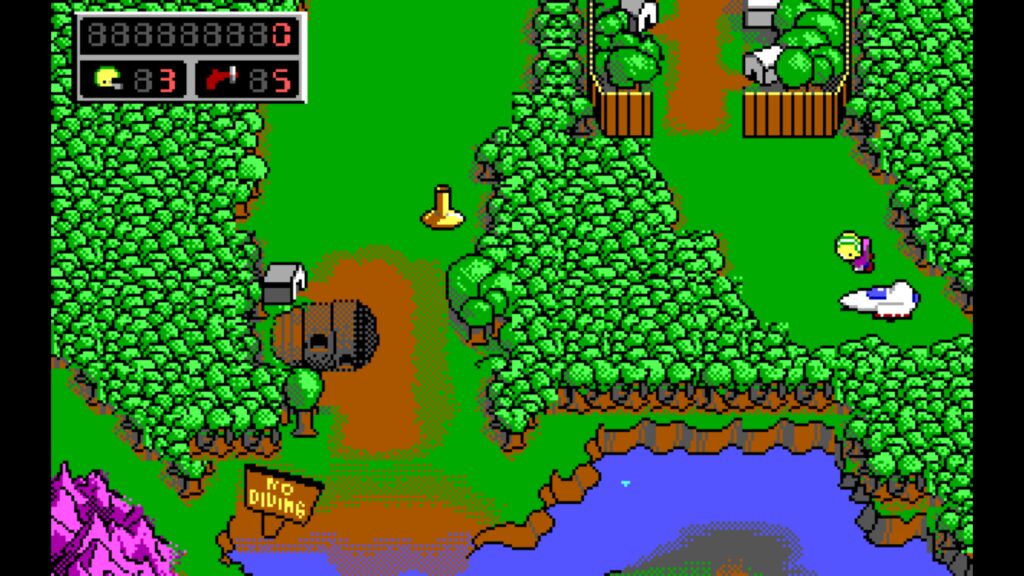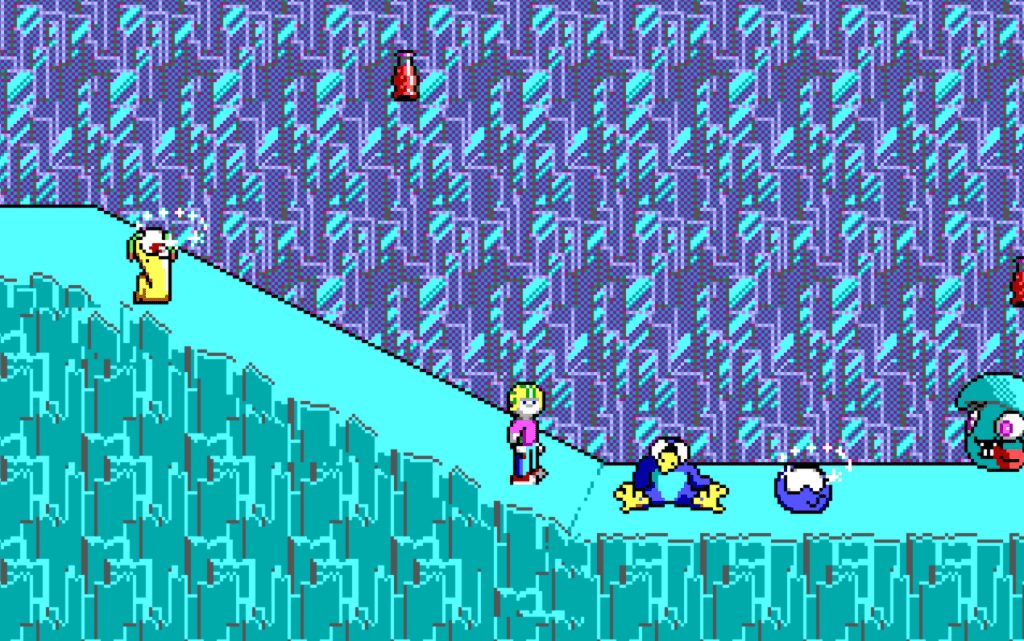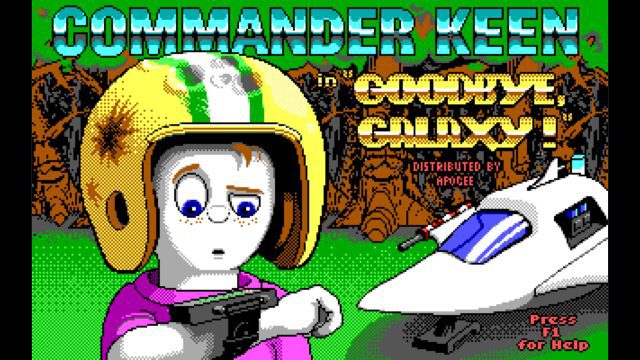While other kids were playing their Mario Bros. and various side scrolling games, I was busy hunched over an old Packard Bell playing the Commander Keen series of games. Of the many Shareware outing from id Software and Apogee, Goodbye, Galaxy! had the most impact on my childhood. As someone who didn’t get Nintendo system until later, it’s hard to justify a console purchase to your parents when your dad already had a PC for work, the PC was my only outlet to game on.
Goodbye, Galaxy! was the epitome of DOS gaming nirvana on all levels. When people talk about the greatest games ever released on PC I always make sure to point this one out and all the things that it lead to. In a sense, without the Commander Keen series we wouldn’t have games like Call of Duty today. I know that may sound crazy, one is a cartoon sidescroller and the other is a modern day, intense FPS, but trust me, they are connected in the greater video game circle of life.
You see, Goodbye, Galaxy!, and the Keen series as a whole, came from the people at id software. While most of you reading this know who id software is, others may have a better knowledge of who the actual people were behind the Commander Keen series. The two programmers behind the games were John Carmack and John Romero, the same two people behind the groundbreaking Doom series of games. So, in a sense, without Commander Keen the world of modern day games wouldn’t exist, regardless of your thoughts on the state of modern “bro” gaming.

The Keen series saw seven games in total, but for me personally, Goodbye, Galaxy! was the one that I spent most of my time coming back to again and again. What made this outing so memorable was that it dumped the old, but functional, engine used in previous games and instead opting for a new one that offered huge leaps with graphics and sound. Seeing it as a kid is tantamount to seeing the original Mario Bros. and a few months later seeing New Super Mario Bros. Wii. While that may be a bit of an exaggeration, It really did feel like that large of leap through my young eyes.
As a kid a had a box full of floppy disks that I picked up from all sorts of places. Sometimes I’d be lucky to sang a few one of the annual sales they had at the fairgrounds, or trading them about the playground, but most, if not all, were shareware offerings. Goodbye, Galaxy! was no exception, with my version having only the first episode on the disk. Even after the time I got my hands on an NES and even an SNES, I spent lots of time coming back to Goodbye, Galaxy! even if it was only a tiny fraction of a much larger game.
That being the case, most of my memories revolved around “Secret of the Oracle”, the first episode of Goodbye, Galaxy! It was until Apogee and 3D Realms released their Anthology pack that I got the chance to play more of the game. I think this says a lot about the quality of the game when a simple shareware title can give you years of enjoyment. Can you imagine playing a demo today and liking it so much that you go back to it for years to come without ever getting the full game? Sure, games, even shareware ones, were a great deal more difficult to find back then, but Commander Keen was in a class all of its own.

As for the game itself, Goodbye, Galaxy! tells the tale of kid genius, Billy Blaze hanging out in his backyard testing out a newly built Photachyon Transceiver. The fancy named machine essentially amounts up to being a space radio that has the ability to pick up alien signals from anywhere in the galaxy. Young Billy Blaze manages to pick up a strange signal and deduces that an evil alien race plans of bowing up the entire galaxy, as kids are wont to do. Billy’s knee jerk reaction is to take the battle directly to the aliens and stop their nefarious plans, whatever they may be. It’s a whole lot of silly and for that, I love it dearly. While it may not win any awards in the writing department, compared to console games of the day it was Shakespeare.
Gameplay consisted of controlling Commander Keen in a sidescrolling manner, much in the same way most games of time handled, but Commander Keen did it so well that it it still holds up today as a PC masterpiece of gaming. You’ll be hard pressed to find someone that grew up playing PC games in the early 90s that doesn’t hold fond memories of at least one of the Commander Keen games. Platforming was silky smooth with Commander Keen having the use of his Pogo-Stick on top of a standard jump. Level design made sense, with levels varying in size, but making logical sense, even to a young kid.
Death will come quickly as this isn’t an adventure suited for the casual player. One hit kills are the name of the game, so your platforming skills will need to be up to snuff if you plan on even finishing the shareware level provided on the disk. Going back and giving Goodbye, Galaxy! another go I realized the my younger self had much more patience than I do today. That’s not to say the game is unfair, but games back then made up for not being twenty hour affairs by ramping up the difficulty.
Another thing that made Goodbye, Galaxy! and the other Keen games was their use of an overworld to find your way around. Instead of progressing level by level, like in say, Mario Bros., Goodbye, Galaxy! utilized a map system that allowed the player to dictate their next goal or objective. While it didn’t offer the level of freedom, or complexity, of games from today, the perceived freedom of choice really stuck with me as I played. I could tackle levels in the way I was accustomed, or I could mix things up and go another way, thus giving me a slightly different experience ever time I played.
Commander Keen is a legendary series in the world of PC gaming and one that all players really should have in their collection. Goodbye, Galaxy! is, in my opinion, the peak of the entire series and manages to still stand out among the now crowded world of PC releases. While the PC never had a mascot, many would agree that Commander Keen could easily taken that mantle. It’s a shame that there aren’t more Keen games being made today as most retro inspired PC games, even the best ones, all still pale in comparison to Commander Keen and Goodbye, Galaxy!


